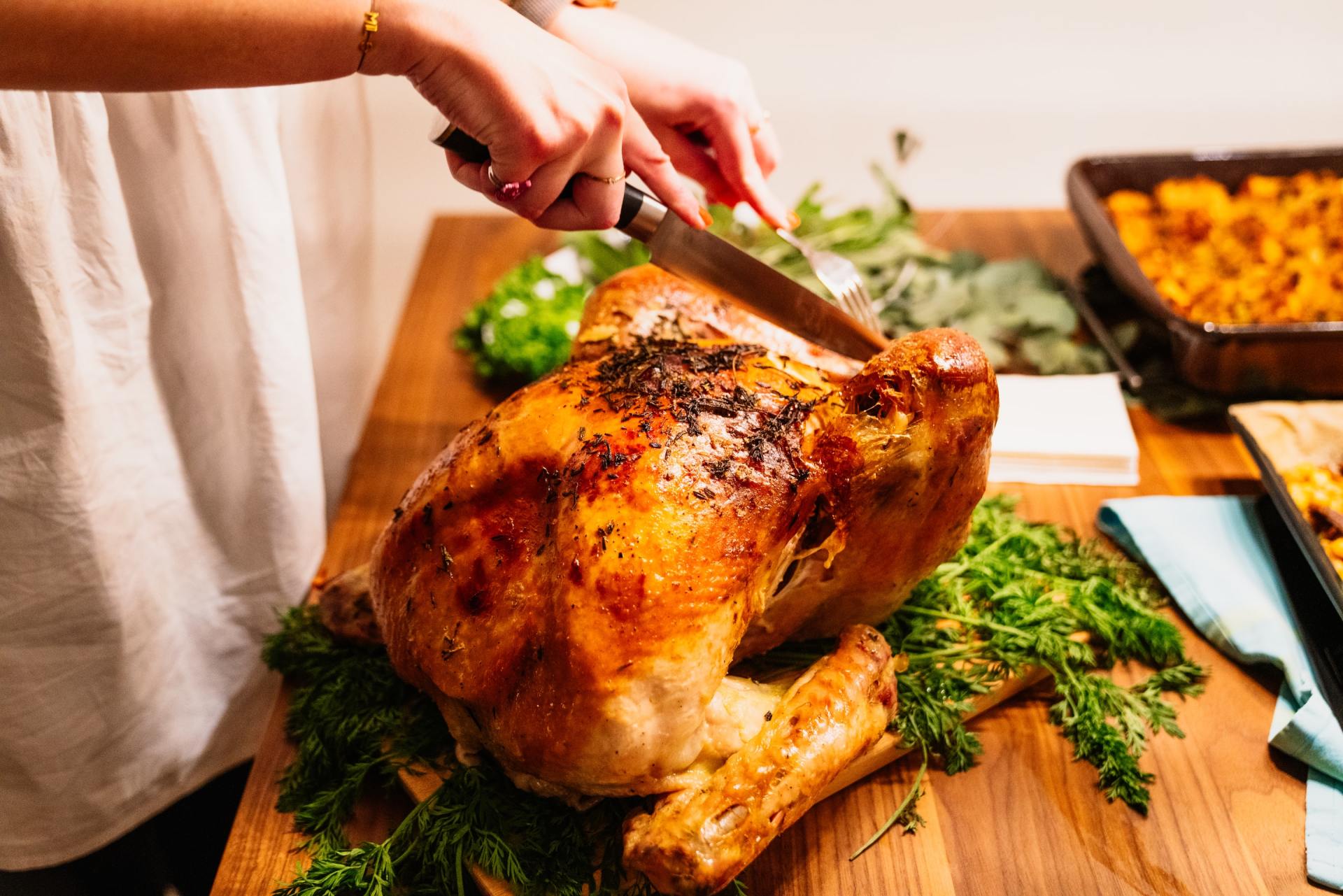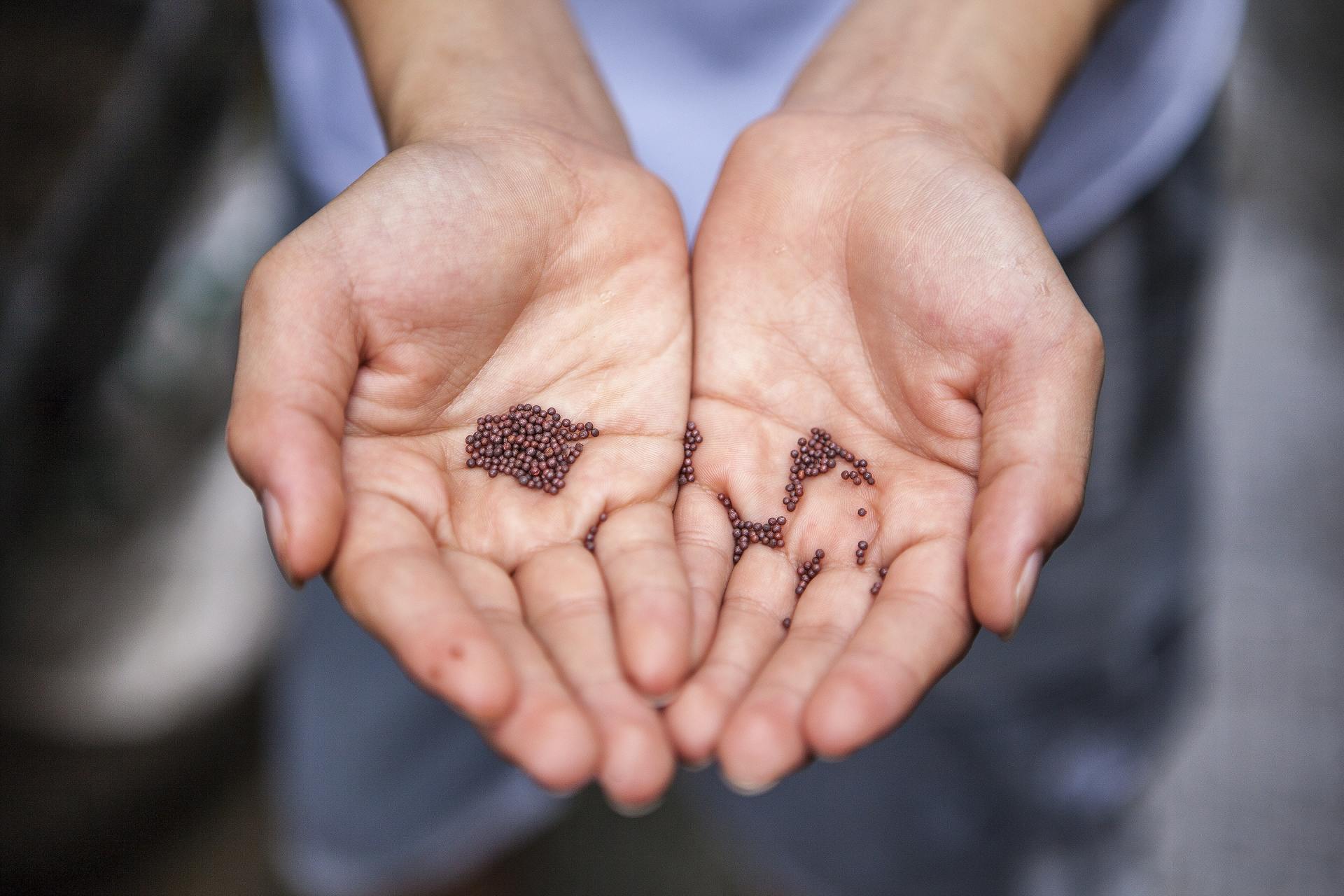Occasional Sermons
Thanksgiving

Thanksgiving is a distinctly American holiday. It is a distinctly American holiday because it recalls a distinctly American event. It recalls the Pilgrims’ very first Thanksgiving celebration. We all know something of that story. In 1620, the Pilgrims – 110 in all - set sail for the New World on the Mayflower. If you’ve ever seen a replica of the Mayflower, and you’ve ever seen an ocean, you can about imagine the difficulties of their voyage. It was cramped. It was cold. It was wet. It was dangerous. And it was long – over two months. By the time Plymouth Rock was sighted, most of the Pilgrims were ill, and it was November. Winter was fast upon them. That first winter was devastating to the Pilgrims. It was particularly long and harsh, and the Pilgrims, weakened and inexperienced, were unequal to it. Even if they had been strong and experienced, they would have been unequal to it. How could they possibly construct a settlement and store up food for the immanent winter? The answer is they couldn’t. In fact, during that first winter, most of them died. Imagine their spirits as they laid one after another of their dwindling party to rest. By the spring they numbered somewhere in the 40’s. This was all that remained of the expedition – 40 some odd souls - all alone in a place that they had come for refuge, but that had proved hostile to them; all alone, that is, except for the Native Americans they feared would finish them off. One day a brave walked into the settlement. The Pilgrims fled to their dwellings terrified, until the brave called out “Welcome” in English! His name was Samoset. He soon returned with the brave who had taught him English because he had actually voyaged to England. His name was Squanto. Squanto, in fact, was every bit as heroic as the Pilgrims. The Pilgrims literally would have perished without him. He taught them how to survive, how to make this hostile place hospitable. He taught them how to tap maple trees, which plants were poisonous and which held medical powers, and how to plant native crops, especially corn. That year the harvest season was bountiful, in marked contrast to their dire predicament one year prior. They had grown and stored enough crops to last the winter, not to mention the meat and fish in store that they had salted and cured. The Pilgrims had made it. They had beaten the odds. It was time for them to give thanks. And so their leader, Governor William Bradford, proclaimed a day of Thanksgiving to be celebrated by the Pilgrims and the Native Americans. Squanto brought with him 90 braves, and the proceedings lasted for three full days. They feasted, to be sure, but they also played games, displayed skills with bows and muskets, and made music. It was truly a miraculous event. And so it is apt that we as Americans recall this event each year, recall it and commemorate it. And how do we commemorate it? Basically, we imitate them. We give thanks like they did. We make a feast like they did. And instead of the games, weaponry displays, and music, we watch football. We leave that to the professionals. Now this is all well and good, but I think we could dig a bit deeper and do a bit better in our commemoration. So let us return to the Pilgrims. One thing we have overlooked is that the Pilgrims set sail because they were suffering religious persecution in England. They were deprived of conscientious freedom and freedom to practice their faith. And the New World was not in fact their first choice. Holland was. But Holland proved unworkable. Dutch culture granted them greater liberty but was at odds with their beliefs. They were driven from England, then driven from Holland. The Pilgrims, then, number among the many peoples who have been dispossessed of their homeland. They number among the migrants, immigrants, and refugees -- the aliens, as the Bible calls them. And the Bible recognizes just what we have just seen of the Pilgrims: the utter vulnerability of aliens. So the reason they gave thanks was less for the feast, and more for the fact that as those dispossessed they had at last found provisional security. And so, we may wonder, how would the Pilgrims themselves have wanted us to commemorate them? By merely imitating them, or by coming to the aid of their counterparts in our day? The answer is easy enough to imagine. We see it all the time. Something bad, something terrible happens to someone – they fall victim to injustice or disease or loss. They learn the reality behind something that prior to their own misfortune had been just a label or a headline. And when they pull through, they reach out to others who have fallen like victims. The bottom line is that those who have suffered in a particular way tend to want to aid others who are suffering in the same way. The Pilgrims, I sense, then would want us, ironically, not to imitate them so much as to imitate Squanto. He was quite a man, if you think about it. He didn’t care that the Pilgrims were a different color than himself. He didn’t care that they held a different creed than himself. He didn’t care, even, that they were on his land. He cared only that as those dispossessed they were vulnerable. Surely even though most of us have not been dispossessed we can understand this at some level. As the apostle Paul writes in our Epistle Lesson, “while we are in this tent we long for our heavenly dwelling…we would rather be at home with the Lord.” If you think about it, we are indeed all dispossessed of our true homeland seeking provisional security on our earthly journey. Feasting. Family. Friends. Football. Gratitude, yes and yes again, gratitude for all that we have. These are legitimate. But to really do honor to Thanksgiving, our gratitude must be as fulsome as the Pilgrims’, and must call forth from us universal service to today’s Pilgrims, vulnerable in their search for a New World. God bless and protect us all. Amen.

